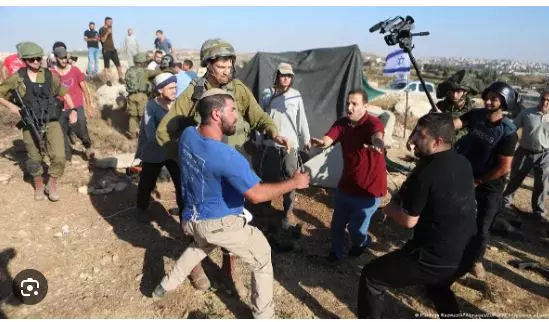
EU may ban violent Jewish settlers of West Bank as Israel approves new houses in Jerusalem
text_fieldsThe European Union's foreign policy chief, Josep Borrell, announced on Monday the intention to propose sanctions on Jewish settlers involved in violent acts against Palestinians in the Israeli-occupied West Bank.
The EU expressed deep concern over the surge in violence, particularly by extremist settlers, and condemned Israel's recent approval of 1,700 additional housing units in Jerusalem, seen by Brussels as a breach of international law.
"The time has come to move from words to actions," Borrell stated during a press briefing in Brussels after meeting with EU foreign ministers to discuss their response to the Israeli war on Gaza.
He emphasized the need to address acts of violence against the Palestinian population in the West Bank. Borrell plans to collaborate with EU officials to compile a list of prominent settlers engaged in attacks, proposing sanctions for human rights abuses.
While the specifics of the sanctions were not detailed, EU officials hinted at measures such as travel bans to the EU. However, potential challenges may arise, as some EU member countries, including Austria, the Czech Republic, and Hungary, maintain strong alliances with Israel.
The UN Security Council envoys visited the Rafah border crossing on the Egyptian side, expressing horror at the suffering in the Gaza Strip.
China's representative, Zhang Jun, sent a clear message, stating, "Enough is enough," when asked about nations opposing a Gaza ceasefire. The majority of UN member states support an immediate ceasefire, but the United States, a staunch supporter of Israel, recently vetoed a draft resolution calling for an end to hostilities.
A dozen Security Council envoys, excluding the US and French representatives, participated in the trip organized by the United Arab Emirates. The visit aimed to assess the dire conditions in Gaza, where thousands of people are facing starvation, according to UN Secretary-General Antonio Guterres.
As international efforts to address the crisis unfold, Israel continues its bombing campaign in Gaza. Fierce fighting, particularly in central and southern Gaza, has been reported, with Hamas claiming clashes in central areas and witnesses detailing deadly Israeli strikes.
Israel Defense Forces are intensifying efforts to consolidate control in urban centres and pursue Hamas leaders.
Israeli Defense Minister Yoav Gallant dismissed international calls to conclude the military offensive, stating that the current phase, characterized by heavy ground fighting and air support, could last for weeks. Gallant indicated that the next phase would involve lower-intensity fighting against "pockets of resistance." He emphasized the need for Israeli troops to maintain operational freedom.
Despite the ongoing conflict, Prime Minister Benjamin Netanyahu called on Hamas to "surrender now," asserting that thousands of militants have been killed during the war, now entering its third month.























